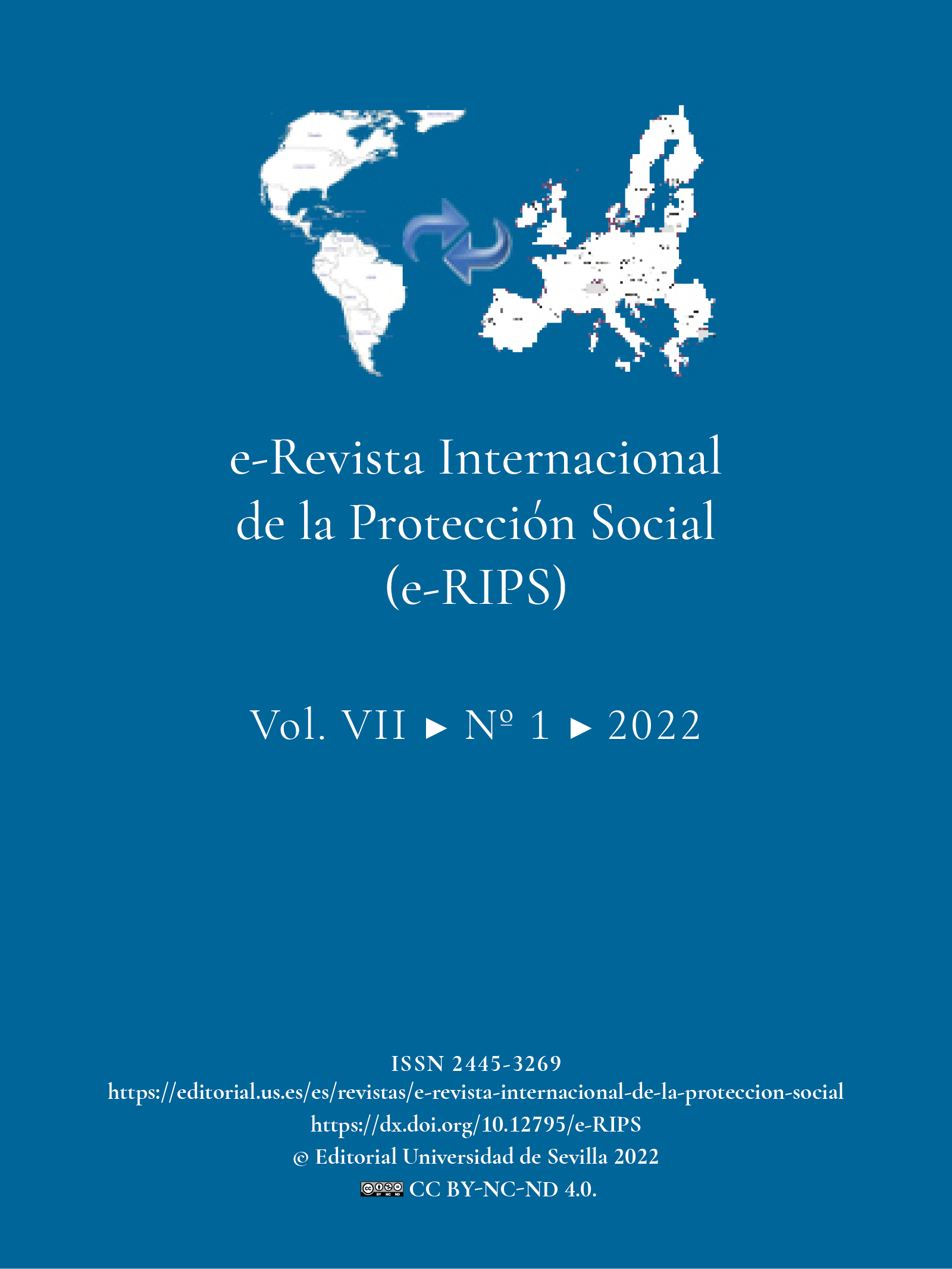Impact of AI and robotics on social and health care
DOI:
https://doi.org/10.12795/e-RIPS.2022.i01.06Keywords:
Algorithm, Family caregiver, Interoperability, Socio-health robot, Cyber-physical systemAbstract
In the current socio-sanitary context, aging, the problem of unwanted loneliness, the emerging models of families and coexistence, as well as their impact on the forms of care, contribute a new character of care to the Care System contemplated under an integrative philosophy, of co-responsibility and centered in the person. In this social environment, it is convenient to reaffirm the need to strengthen the System with a new model, where the objective would be set to achieve effective alternatives for care that provide solutions to emerging demands and new job challenges. Innovation is established as the basis of productive systems, but it also refers to the role that globalization plays, work focused on people’s capacities by betting on training, and sustainable and decent work. In line with these issues, the social health care of the future with the impact of AI and robotics could not be less.
Downloads
References
Bautista Loza, D. A. y Martini Popoli, S.: ¿Qué hay más allá del Valle Inquietante?, Centro de Automática y Robótica (CAR) UPM-CSIC, Madrid, 2014.
Butler, R.N.: Why Survive? Being Old in America, Harper & Row, New York, 1975.
Frey, C.B. y Osborne, M.A.: “The future of employment: How susceptible are jobs to computerisation?”, Technological Forecasting and Social Change, vol. 114, núm. 1, 2017.
García, G.; Ramírez, J. M.; Aranda A. M.; y Rueda, A.: Ideas y propuestas para un nuevo modelo residencial para personas en situación de dependencia. Residencia su casa, Asociación de Directoras y Gerentes de Servicios Sociales, 2021.
IMSERSO: “Edadismo en Estados Unidos”, Boletín sobre el envejecimiento perfiles y tendencias, vol. 1, núm. 40, 2009.
Martín Quetglas, G.: “¿Qué es la digitalización?”, Análisis del Real Instituto Elcano, núm. 64, 2019.
Mori, M.: “The Uncanny Valley”, Energy, vol. 7, núm. 4, 1970.
OIT: El futuro del trabajo que queremos. Conferencia Nacional Tripartita. Iniciativa del Centenario de la OIT (1919-2019), Ministerio de Empleo y Seguridad Social, Madrid, 2017.
OIT: Trabajar para un futuro más prometedor. Comisión Mundial sobre el Futuro del Trabajo, Oficina Internacional del Trabajo, Ginebra, 2019.
OMS: Década del Envejecimiento Saludable 2020-2030. 2ª Asamblea Mundial sobre el Envejecimiento, Naciones Unidas, Nueva York, 2002.
Poyatos Chacón, F.: Evaluación de la dependencia, mejora de la calidad, Vérticebooks, Málaga, 2012.
Rodríguez Arjona, M. D.; de Rillo González, F. y Berenguer Maimó, J.: “Impacto de la soledad en los medios de comunicación”, Observatorio Ciudades que Cuidan, Fundación Mémora, 2020.
Rodríguez Rodríguez, P. y Gonzalo Jiménez, E.: “COVID-19 en residencias de mayores: factores estructurales y experiencias que avalan un cambio de modelo en España”, Gaceta Sanitaria, 2021.
Sala Mozos, E.: La soledad no deseada durante la vejez, un fenómeno complejo objeto de las políticas públicas, Observatorio de la Soledad Amigos de los Mayores, Fundació Víctor Grífols i Lucas, 2015.
Torra, V.: “La inteligencia artificial”, Revista Lychnos, núm.7, 2011.
Published
How to Cite
Issue
Section
License
Authors being published in this journal agree to the following terms:
- Authors retain their copyright and they will guarantee to the journal the right of first publication of their work, which will be simultaneously subject to license recognition by Attribution-NonCommercial-ShareAlike (CC BY-NC-SA 4.0 DEED)
that allows others to share such work provided that the author’s name and his first publication in the e-International Review on Social Protection is stated. - Authors may take other non-exclusive distribution license agreements version of the published work (e.g. deposit in an institutional digital file or publication in a monographic volume) provided that the initial publication in this journal is stated.
- Authors are allowed and encouraged to disseminate their work via the Internet (e.g. in institutional digital files or on their website) prior to and during the submission process, which can lead to interesting exchanges and to increase citation of the published work.











